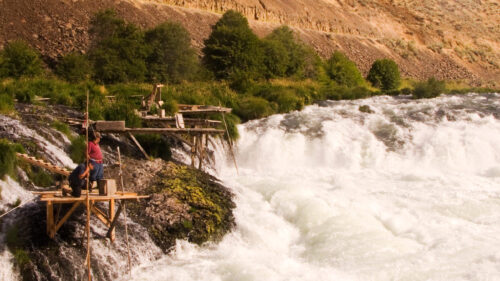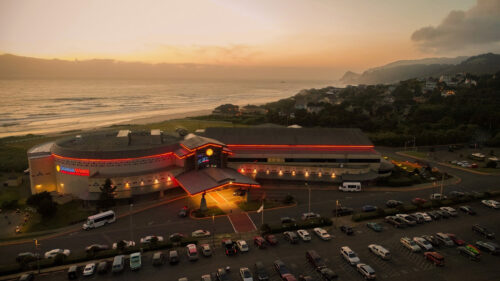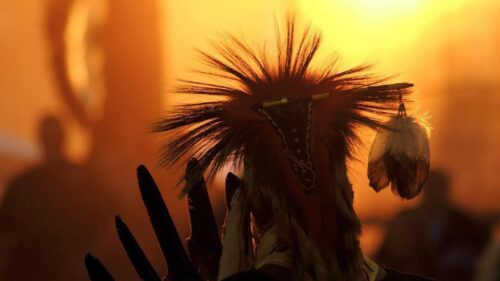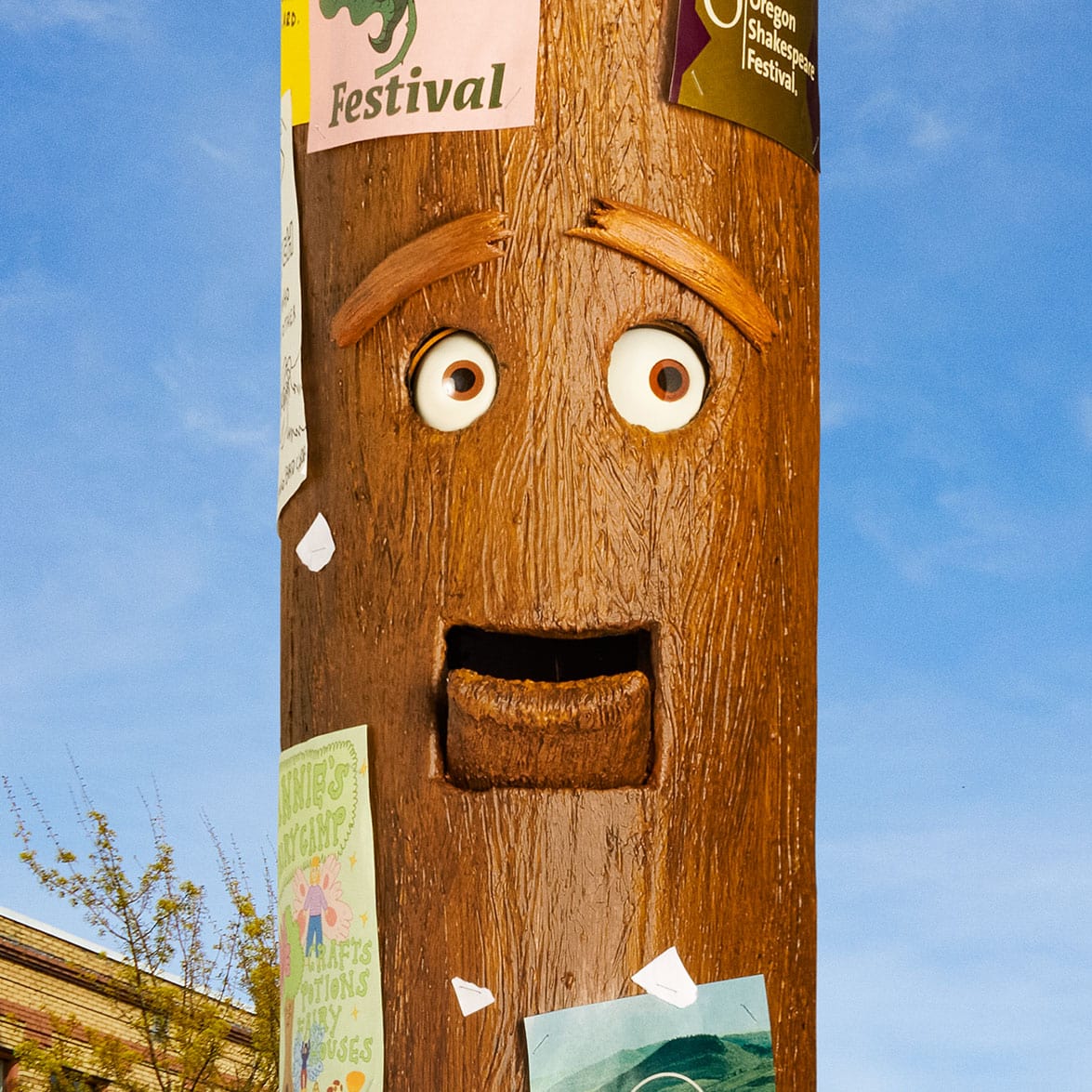Editor’s note: Face coverings (ages 5 and up) are required at all indoor public spaces statewide, regardless of vaccination status. Learn more here.
Hidden beyond the steep, oak-savannah hillsides that surround Interstate 5 are Southern Oregon’s greatest treasures. Stands of old-growth Douglas fir trees tower above lush pocket valleys, springtime wildflowers turn grass oceans blue, and summertime huckleberries grow fat and purple on the bush.
Hidden also is the history of the area’s original inhabitants, who, despite violent efforts at displacement more than a century ago, survived and adapted to the rapid change that westward expansion and a young nation brought to the Umpqua Valley. Federally recognized as the Cow Creek Band of Umpqua Tribe of Indians and known to ourselves as Nahankhuotana, we are descendants of those original inhabitants who grew up among the same stands of trees, fishing the same streams and picking from the same huckleberry patches.
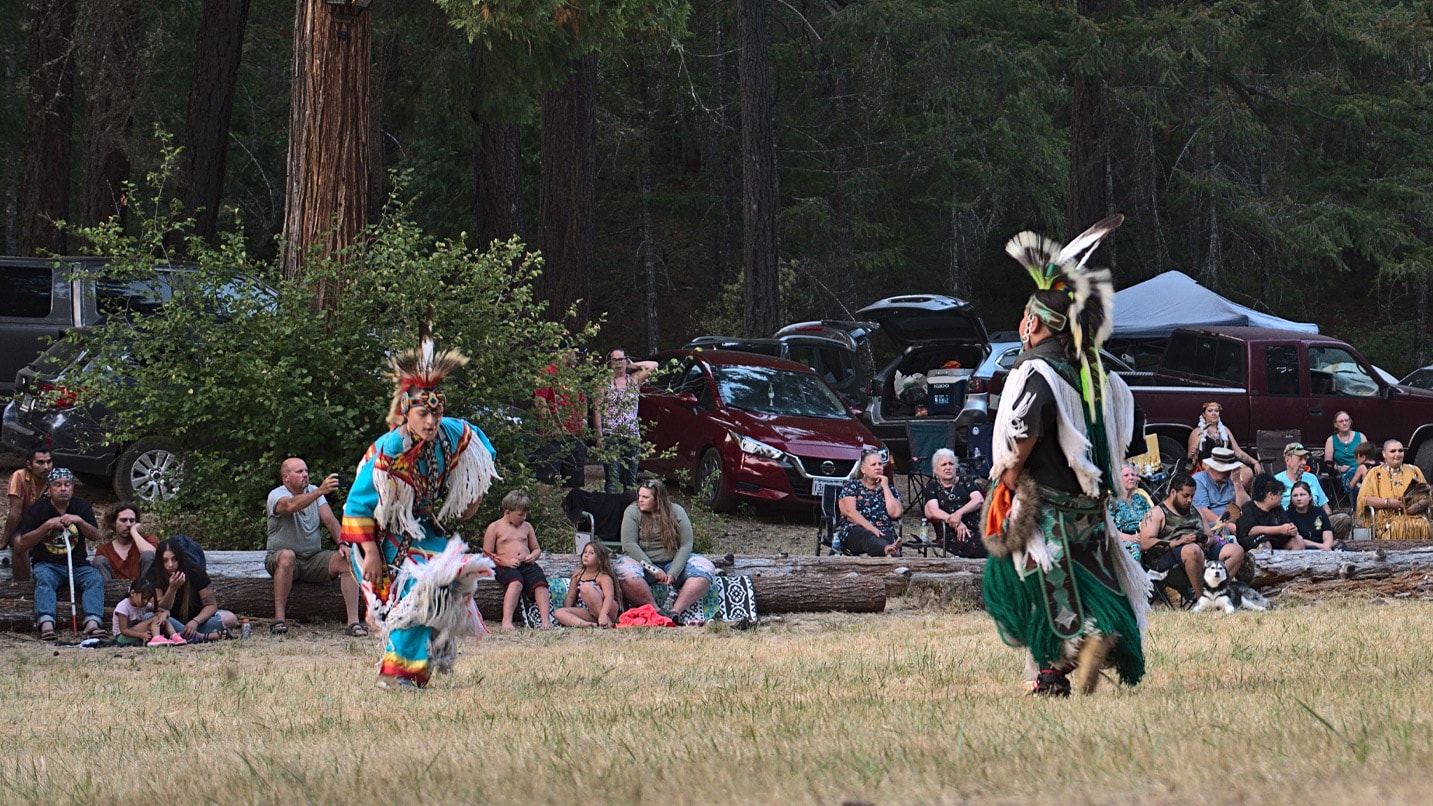
Honoring the Past
On a drizzly March day, I stood in a circle with other Tribal members to celebrate spring and a traditional food of the tribe, camas. We opened the earth with digging sticks and learned to plant the starchy bulbs of the flowers that were an essential springtime source of calories.
“Tu Wuk,” someone in the circle said, and we all repeated in unison. It means “It is good” in Takelma, a once-dormant language we are all learning to speak again.
In 1853, on the banks of modern-day Cow Creek, my ancestors signed a treaty with the United States government that declared them a sovereign nation. A few years later, the Rogue River Indian Wars swallowed the Indigenous people of Southwest Oregon in a bloody conflict that left most of the original inhabitants of the Umpqua Valley dead, or marched to one of the reservations in Oregon.
But some hid and survived, abandoning the verdant valleys to find refuge in the summer mountain places. While being hunted by settlers, they learned to survive by assimilation, marrying the fur trappers and traders that thrived on the fringes of white-settler society. They took French-Canadian last names, and gradually they moved farther out of the mountains to live on remote ranches and mining claims.
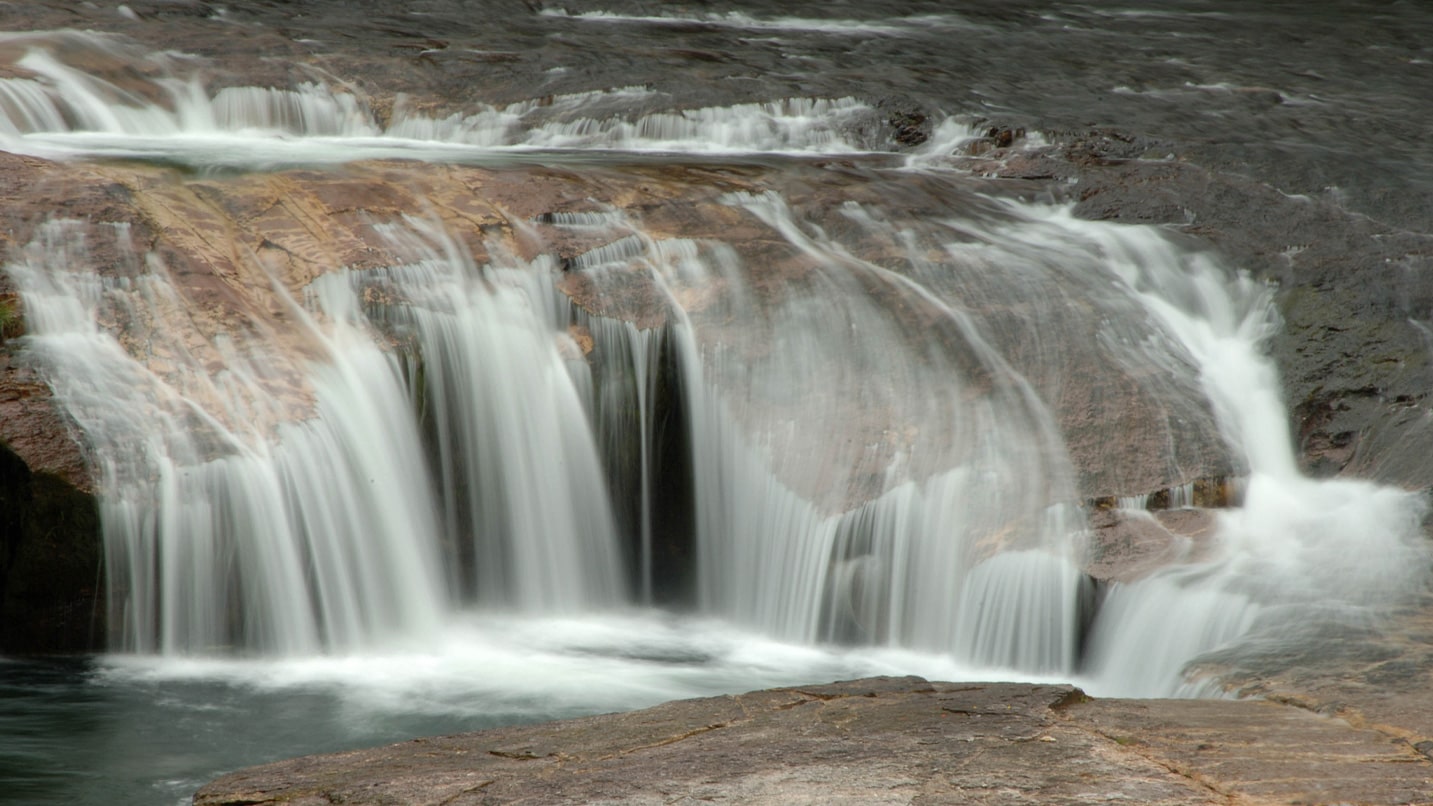
Tribal Traditions Continue
But last names like Rondeau and Pariseau didn’t erase history. Summertime harvest traditions never stopped, and as memories of the 19th-century genocide faded from the valleys, more culture came back. My great-grandparents held “Indian Meetings” that paved the way to a recognition of the promises made in 1853.
In the 1970s, the boom of rawhide drums returned to our traditional pow-wow grounds at the South Umpqua Falls (temporarily closed due to nearby wildfires) and continues to this day at the annual South Umpqua Falls Intertribal Pow-Wow, typically held in July. In the 1980s, the seven branches of the ancestral family that clung to their home after the 1856 wars were recognized by the federal government as the Cow Creek Band of Umpqua Tribe of Indians.
Between 1853 and 1982, the Cow Creek Tribe was not recognized by the federal government. In 1982, President Ronald Reagan signed a bill recognizing the Tribe, and visitors can look forward to local festivities in spring 2022 to celebrate this 40th anniversary.
Since recognition, the Tribe has continued to build and expand a number of thriving local businesses that employ Tribal members and a large portion of the local community. Profits from Tribal businesses fund cultural revival and preservation programs, Tribal clinics open to the public, and education and housing for Tribal members.
For the people placing camas bulbs into the earth that drizzly March day, it was more than just growing a flower. It was growing a connection to family, history and land in a meadow layered with thousands of years of our presence. The camas bulb in the earth was the hope that our history will flower into a future on the same land.
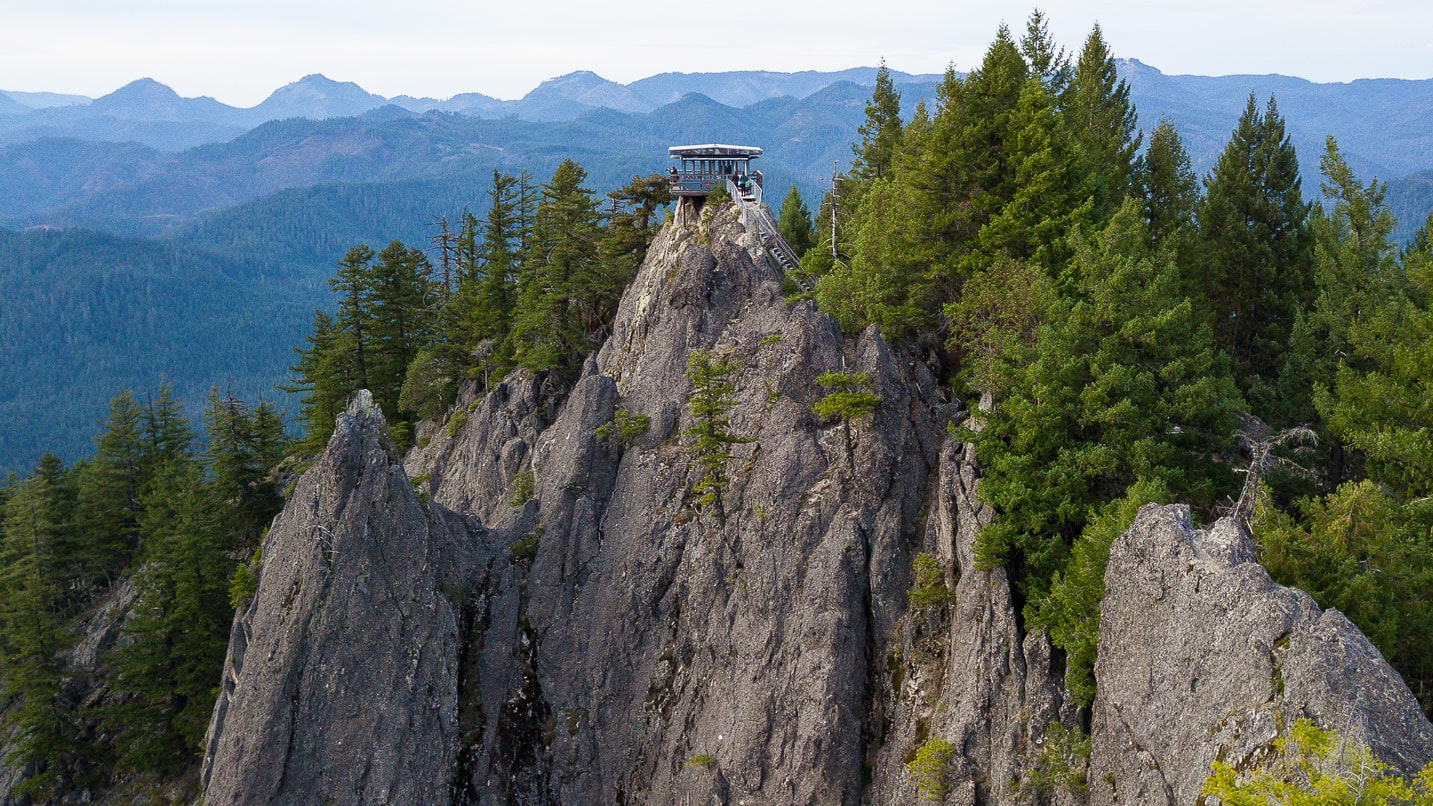
Support and Explore These Tribe Destinations
Seven Feathers Casino Resort and Creekside Hotel
Named after the seven branches of the Tribal family that persisted in the area, Seven Feathers Casino Resort brings gaming, nightlife and a luxury hotel to the Umpqua Valley. Inside the casino’s doors, visitors can bite into a juicy sirloin at the K-Bar Steak House, restore the spirit at the River Rock Spa and catch big-name performers at the events center. The casino celebrates its 30th anniversary in spring 2022.
The attached Creekside Hotel & Suites offers huge, luxurious rooms; a pool and hot tub; several restaurants and lounges; and access to more than 900 slots and table games on the casino floor.
While you’re there, stroll through the lobby to see an exhibit on traditional culture in the Umpqua Valley, with baskets woven by Tribal members. At the hotel, visitors may also see Tribal elders at lunch meetings and Tribal youth at career fairs.
Umpqua National Forest
Less than two hours from Seven Feathers are the summer lands of the Tribe in the Umpqua National Forest. Close to a million acres in size, the Umpqua National Forest is home to thundering waterfalls, unique water features excellent for summer swims and ample opportunities to camp beneath old-growth Douglas fir trees.
Within the forest is the Rogue-Umpqua Divide Wilderness, a rocky and rugged region with spectacular views and adventurous trails. Experienced wilderness travelers can crest the region on the 31-mile Rogue-Umpqua Divide Trail.
Those looking for a more relaxed afternoon can soak in cool mountain waters at the South Umpqua Falls Campground, where the South Umpqua River spreads into a curtain before pouring into deep pools. The falls were and still are an important site for the Tribe, but anyone can and should enjoy a plunge into the refreshing water.
A few miles from the South Umpqua Falls in the tiny town of Tiller is Acker Rock, a massive volcanic monolith with a U.S. Forest Service lookout tower that offers spectacular panoramic views of the South Umpqua Watershed. If you plan far in advance and don’t mind hiking in about half a mile, you can rent the fire lookout for a unique lodging experience. Acker Rock is also home to some of the best adventure rock climbing in Southern Oregon.
Seven Feathers RV Resort
On your way back from the Umpqua National Forest, stop by the Seven Feathers RV Resort for a low-key and comfortable place to stay tucked into the oak-savannah hills just outside of town. If you have your own rig, pull into one of the full-hookup RV sites. Or stay in the cozy cabins and yurts available in the park.
All visitors have access to the park’s indoor pool and hot tub, full-kitchen gathering center, fitness and media centers, and a play structure for the kids. There are also bike trails, a barbecue pavilion, horseshoe pits and a shuttle service to the casino.
Takelma Roasting Company
While you’re in the area, head to Takelma Roasting Co. to stock up on sustainably sourced coffee roasted in the Umpqua Valley. Founded by the Tribe in 2017, this coffee roaster bags up a slew of delicious coffee blends with a Takelma word that describes each. My favorite is wi’lii, meaning “house” — the Plank House Blend medium roast. You can find Takelma coffee and a mug to go with it at the roastery in Roseburg, at Seven Feathers Casino Resort (grand opening scheduled for July 2021) or at any of the Tribal businesses in the area, such as the 7 Feathers Truck & Travel Center in Canyonville — an excellent stop for sandwiches and snacks on the go.
